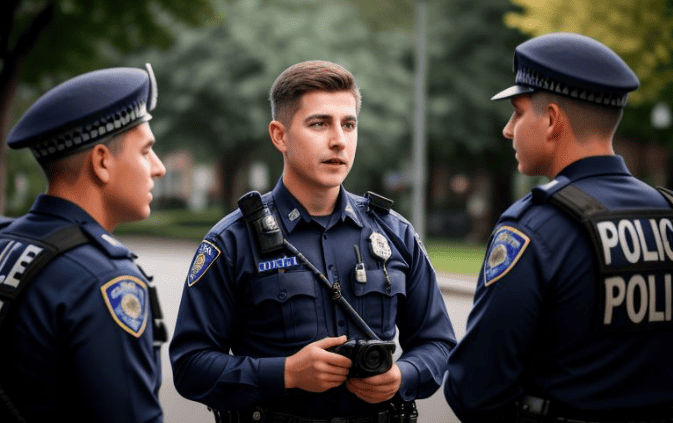Community Policing – Transcript
Community policing is a law enforcement strategy that emphasizes building relationships with community members to prevent crime and solve community problems. It is based on the premise that community members are the best experts on the problems in their neighborhoods and that law enforcement should partner with them to develop solutions.
Community policing is often credited with reducing crime and improving community relations. It has been shown to improve communication between police and community members, increase public trust in the police, and reduce fear of crime.
Critics of community policing argue that it is a Band-Aid solution that does not address the root causes of crime. They also argue that it can lead to police corruption and abuse of power.
Community Policing - Video
Community Policing – Video Gap Fill
Why not try a Video Gap Fill assignment based on this lesson?A New Approach to Protecting People and Communities

Introduction
Community policing is a proactive approach to law enforcement that focuses on building strong partnerships between the police and the communities they serve. Unlike traditional policing, where officers mainly respond to crimes after they occur, community policing emphasizes collaboration, problem-solving, and prevention. The idea behind community policing is that a safe and thriving community requires active involvement from both the police and the people they protect.
Building Trust and Communication
One of the main benefits of community policing is that it builds trust and allows open communication between the police and the community . By working together on local issues and concerns, police officers become familiar faces in the neighborhood. This creates trust and familiarity. This trust is necessary for preventing crime and resolving conflicts.
Proactive Problem-Solving
Community policing encourages police officers to address the root causes of crime. Instead of just responding to emergencies, officers work with community members to identify and solve problems before they become serious. This approach helps create safer environments by working on issues such as drug abuse, youth violence, and property crime at their source.
Empowering Communities
Through community policing, residents are able to actively contribute to the safety of their neighborhoods. Community members are often included in decision-making. This allows them to talk about their problems and suggest solutions. In addition to improving law enforcement, it also creates a sense of pride and responsibility within the community.
Cultural Sensitivity and Diversity
Community policing emphasizes the importance of understanding and respecting the different cultures within a community. Officers are trained to be culturally sensitive, ensuring fair and treatment for everyone. This helps build positive relationships with various groups and creates a sense of unity.
A Safer Public
The main benefit of community policing is to make people and neighborhoods safe. By working together, police and communities create a safer environment for everyone. This approach not only reduces crime but also improves the overall quality of life in neighborhoods.
In conclusion, community policing is an important strategy that promotes trust and problem-solving between police and the communities they serve. Through this approach, communities can become safer, more resilient, and better equipped to address the unique challenges they face.







